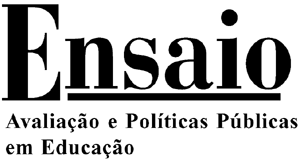This article, of a theoretical approach, examines how the rankings work in the policies of Higher Education of Brazilian State, taking as a parameter four presidential terms: two mandates of the government Fernando Henrique Cardoso (1995-2002), marked by the implementation of neoliberal reforms, and the other two of the government Luiz Inácio Lula da Silva (2003-2010), an alternative to the democratic left in Latin America in face of the neoliberal expansion. It is supported the hypothesis that after four terms and two different presidents that represent theoretically opposing political projects, the rankings, considered as strategies for stimulating competition to improve the quality of Higher Education gained technical consensus and legitimacy within the government, ceasing to be policies of specific governments to become long-term policies of the Brazilian State, above the interests of political groups that alternated in power.
Rankings; Educational Evaluation; Higher Education; SINAES; National Course Examination
